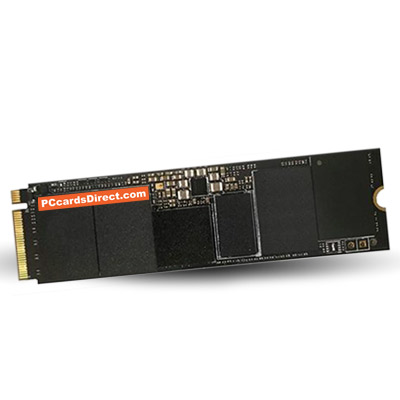M.2 2280 PCIe NVMe SSDs for AI Applications
Up to 7,200 MB/s Read • 1,200 MB/s Write • Industrial Grade Performance

128GB to 3.8TB M.2 2280 NVMe SSDs
High Temperature Rated: -40°C to +85°C
- 1. Find your capacity
- 2. Add to cart
- 3. Continue checkout
PCcardsDirect's M.2 2280 NVMe PCI Express SSDs for Artificial Intelligence using 3D NAND technology, can significantly benefit AI applications in several ways:
🚀 Faster Data Access
SSDs offer superior read and write speeds compared to traditional hard disk drives (HDDs). This faster data access allows artificial intelligence applications to quickly retrieve and process large amounts of data, which is crucial for real-time decision making and reducing latency. With Write speeds of 1,200MB per second and Read speeds of 7,200 MB per second.
⚡ Improved Input/Output Operations
Artificial Intelligence applications often involve extensive data processing, including reading and writing data to storage. NVMe SSDs have higher Input/Output Operations Per Second (IOPS) compared to HDDs, enabling faster data transfers and reducing bottlenecks during intensive AI workloads.
🔄 Enhanced Throughput
NVMe SSDs can provide high throughput, allowing AI applications to handle multiple simultaneous data requests efficiently. This is especially beneficial for artificial intelligence models that require parallel processing or work with large datasets.
⚡ Low Latency
NVMe SSDs have lower latency than HDDs, meaning they can quickly respond to read and write requests. This is crucial for AI applications, as low latency enables faster model training, inference, and real-time decision making.
🛡️ Durability and Reliability
NVMe SSDs are known for their durability and reliability due to the use of high-quality NAND flash memory cells. AI applications, especially those involving continuous data reading and writing, can benefit from the increased endurance of NVMe SSDs, which can handle a higher number of program-erase cycles before wearing out.
🔋 Power Efficiency
NVMe SSDs consume less power compared to HDDs, primarily because they lack moving parts. This reduced power consumption is advantageous for AI applications, especially in energy-constrained environments or when deploying AI models on edge devices.
Overall, NVMe SSDs provide faster data access, improved IOPS, low latency, enhanced throughput, durability, reliability, and power efficiency. These characteristics make them well-suited for AI applications that require high-performance storage to handle large datasets, intensive computations, and real-time processing.
 IN STOCK
IN STOCK
 Ships 24-48 Hours
Ships 24-48 Hours
 Ships 3-5 days
Ships 3-5 days
 Ships 2+ Weeks and Special Order
Ships 2+ Weeks and Special Order
Ship times may vary based on when order is placed and shipping destination. International orders add 1-5 days.



